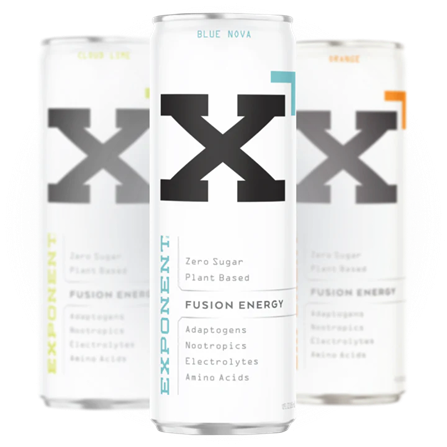Plant-based energy drinks have gained popularity for providing a natural boost without relying on synthetic ingredients or animal products. Many of these drinks focus on clean, sustainable sources like yerba mate and green tea, making them a preferable choice for those seeking a healthier energy boost. They tend to be healthier when they are free from added sugars and artificial additives, relying instead on natural caffeine and plant-based ingredients.
Are Plant Based Energy Drinks Healthy? Sugar-free energy drinks can offer sustained energy with fewer calories and less risk of a crash, but not all sugar-free options are created equal. It is important to look for products that use natural caffeine sources and avoid artificial sweeteners or excessive additives. Brands combining plant-derived caffeine with natural ingredients tend to provide a cleaner, more reliable energy kick.
Choosing the best sugar-free, plant-based energy drink involves checking labels carefully and understanding ingredient quality. Drinks made from non-GMO, natural components without added sugars or synthetic compounds often deliver better health benefits and performance support.
Health Impact of Plant Based and Sugar Free Energy Drinks
Plant-based and sugar-free energy drinks rely on natural ingredients and low-calorie sweeteners to deliver energy without the typical sugar surge. Their health effects depend largely on ingredient quality, caffeine levels, and individual tolerance.
Key Ingredients in Plant Based Energy Drinks
Plant-based energy drinks often use natural sources such as green tea extract, guarana, and yerba mate for caffeine. They exclude animal-derived components like taurine, replacing them with herbal extracts or vitamins from plant sources.
Other common ingredients include B vitamins, antioxidants, and adaptogens such as ginseng or maca root. These ingredients aim to enhance alertness, support metabolism, or reduce stress without relying on synthetic additives.
The presence of natural caffeine sources may lead to a steadier energy release, reducing spikes and crashes seen with synthetic caffeine. However, caffeine quantities vary, so consumers should check labels carefully.
Assessing the Sugar Free Formulation
Sugar-free energy drinks remove or replace sugar with artificial or natural sweeteners like stevia, erythritol, or allulose. These alternatives reduce calorie content while maintaining a sweet taste.
While this helps avoid the negative impacts of high sugar intake—such as weight gain and blood sugar spikes—some sweeteners may cause digestive discomfort in sensitive individuals.
It is important to look for products using well-tolerated sweeteners and minimal artificial additives. Drinks with zero sugar and natural flavors tend to be preferable for those focused on health.
Potential Health Benefits
Plant-based energy drinks may offer improved focus and sustained energy due to the combined effect of natural caffeine sources and B vitamins. Antioxidants and adaptogens can also support cognitive function and reduce fatigue.
Reduced sugar levels contribute to better blood sugar management and lower risk of metabolic issues. The absence of synthetic additives may appeal to those seeking cleaner supplement options.
For people who want energy without rapid crashes or excessive stimulant effects, these drinks can be a useful, more balanced alternative to traditional energy beverages.
Risks and Considerations
Despite benefits, caffeine-related risks remain, such as increased heart rate, anxiety, and sleep disturbances, especially with high or frequent consumption. Individual tolerance varies significantly.
Some plant-based ingredients or sweeteners may trigger allergic reactions or gastrointestinal issues in sensitive users. Sodium and other additives in certain products can also have unintended health effects.
Long-term consumption effects are not fully studied, so moderation is advised. Consumers should review ingredient lists and monitor their own response to avoid adverse outcomes.
Choosing the Best Sugar Free Plant Based Energy Drink
Selecting a sugar-free plant-based energy drink involves careful attention to brand reputation, nutritional content, and taste. The right choice balances clean ingredients with effectiveness and an enjoyable flavor profile.
Top Brands and Products
Several brands lead the market with sugar-free, plant-based energy drinks. Notable options include Zevia, known for its natural sweeteners and zero calories, and Uptime, which offers 200 mg of caffeine or less, catering to moderate caffeine needs. Another respected brand is Marquis Energy Drinks, which focuses on natural ingredients and avoids artificial flavors, colors, and preservatives.
These brands prioritize transparency in their ingredient lists and emphasize clean energy without relying on sugar or synthetic substances. Customers often choose these for their vegan certifications and adherence to fair production practices.
Nutritional Comparison
When comparing sugar-free, plant-based energy drinks, key factors include caffeine content, added vitamins, and absence of artificial sugars. Most leading products contain between 100 to 200 mg of caffeine derived from sources like green tea, yerba mate, or guarana.
A typical product might offer:
|
Brand |
Caffeine (mg) |
Sugar (g) |
Calories |
Key Additives |
|
Zevia |
120 |
0 |
10 |
B vitamins, natural caffeine |
|
Uptime |
200 |
0 |
5 |
Taurine, B vitamins |
|
Marquis |
150 |
0 |
0 |
Electrolytes, antioxidants |
Vitamins B3, B6, and B12 are common, supporting energy metabolism. Avoiding sugar reduces the risk of blood sugar spikes and crashes, making these drinks better suited for sustained energy.
Flavor and Consumer Experience
Flavor varies widely but remains a critical factor in consumer satisfaction. Many sugar-free plant-based drinks use natural sweeteners like stevia or monk fruit to mask bitterness from caffeine sources.
Brands like Zevia offer citrus and berry flavors that receive positive feedback for taste without a chemical aftertaste. Uptime provides less sweet, more herbal profiles preferred by those used to traditional energy drink flavors.
Packaging and carbonation also influence the consumer experience. Light carbonation is common and often enhances refreshment, while some brands offer still versions for a smoother taste. Consumers typically look for balanced bitterness and a pleasant finish to avoid palate fatigue.







0 Comments